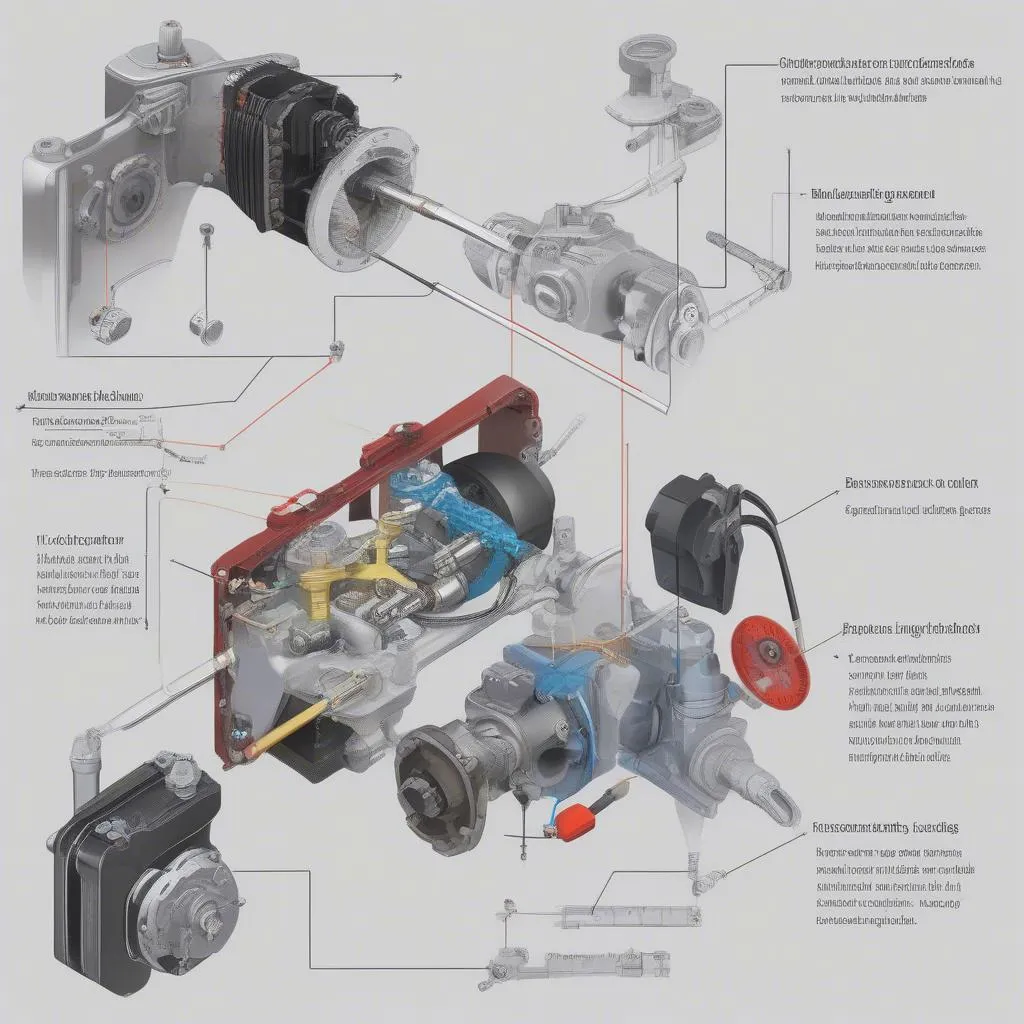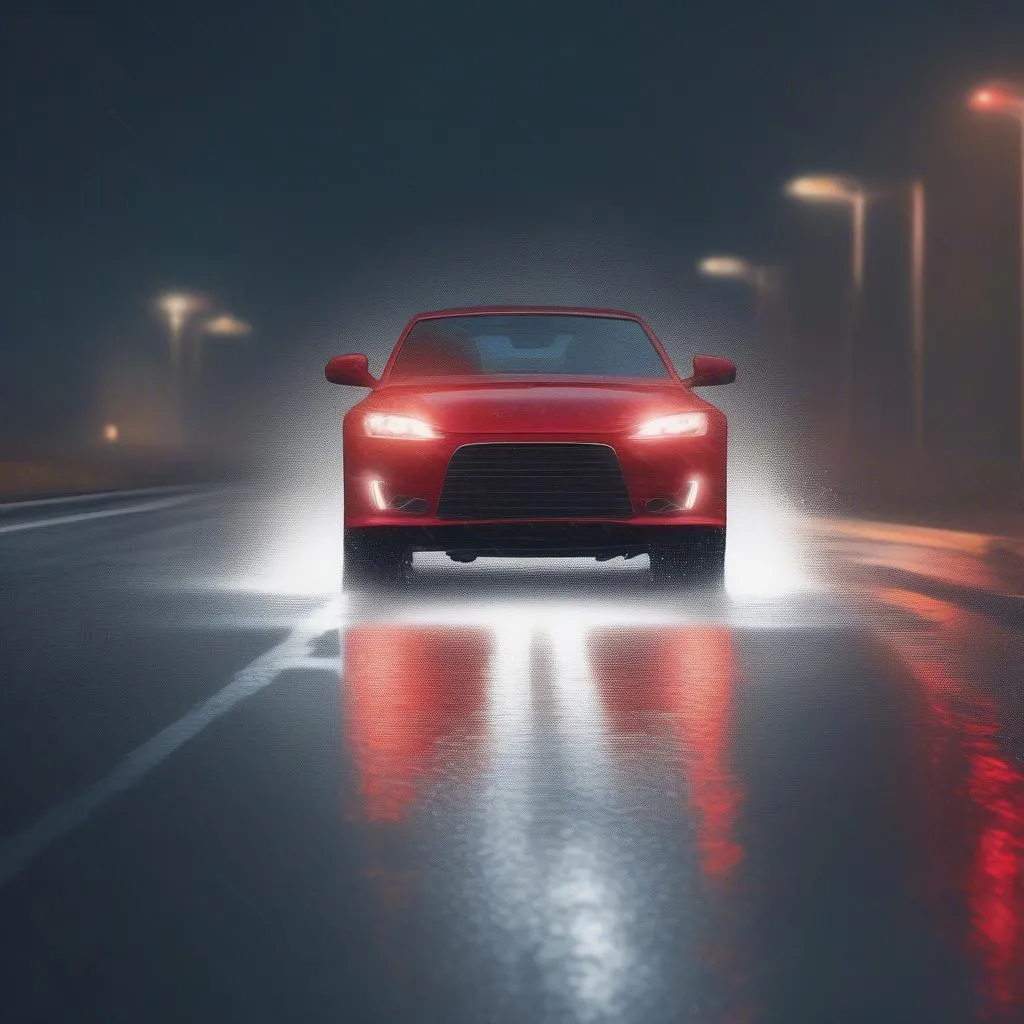Imagine this: you’re driving down a rain-slicked road in your trusty 2018 Ford Focus when suddenly, a pedestrian steps out in front of you. You slam on the brakes, but instead of the jarring, teeth-clenching skid you’re dreading, you feel a pulsing sensation in the brake pedal. Your car shudders slightly, but crucially, it comes to a controlled stop just short of the pedestrian. This, my friend, is the magic of Anti-lock Braking System (ABS).
The Whys and Hows of ABS
Before we dive into what you might notice when using ABS brakes, it’s helpful to understand what’s happening behind the scenes. In essence, ABS is a sophisticated safety feature that prevents your wheels from locking up during hard braking.
Here’s a simplified explanation:
- Sensors: Your car’s ABS system uses sensors to constantly monitor the speed of each wheel.
- Control Unit: This data is fed to an electronic control unit (ECU).
- Hydraulic Valves: When the ECU detects a rapid deceleration that could lead to wheel lockup (like in our scenario above), it rapidly opens and closes hydraulic valves in the brake lines.
- Pulse Modulation: This rapid opening and closing of valves reduce and increase brake pressure multiple times per second, effectively preventing the wheels from locking up and allowing you to maintain steering control.
What to Expect When ABS Kicks In
Now, let’s get to the heart of the matter: what will you actually experience when your ABS activates?
1. Pulsating Brake Pedal
The most noticeable sensation is a distinct pulsing or vibrating in the brake pedal. This isn’t a sign of malfunction; it’s the hydraulic valves rapidly adjusting the brake pressure.
2. Audible Noise
You might also hear a buzzing or humming sound coming from your brakes. This is completely normal and simply the sound of the ABS system doing its job.
3. Slight Vehicle Shudder
As the ABS modulates brake pressure, you might feel your car shudder or vibrate slightly. Again, this is perfectly normal and no cause for alarm.
 ABS Brake System
ABS Brake System
Common Questions About ABS
Here are some frequently asked questions about ABS:
Q: Is it safe to drive with the ABS light on?
A: While you might still have regular braking functionality, a lit ABS warning light indicates a potential issue with the system. It’s crucial to have your car inspected by a qualified mechanic, like those at our partner garages across the country, from the bustling streets of Los Angeles, California to the charming lanes of Charleston, South Carolina, as soon as possible.
Q: Can I damage my brakes by using ABS?
A: No, using ABS won’t damage your brakes. In fact, it helps to prolong the life of your tires and brake pads by preventing lockups and skids.
Q: Do I need to pump the brakes with ABS?
A: No, with ABS, you should apply firm and continuous pressure to the brake pedal. Pumping the brakes can actually interfere with the system’s ability to function optimally.
ABS: Your Ally in Emergency Braking
While the sensations of an engaged ABS system might seem strange at first, remember that this sophisticated technology is your ally in emergency braking situations. Understanding how it works and what to expect can be the difference between a near miss and a collision.
 Car with ABS Engaged
Car with ABS Engaged
For a deeper dive into automotive technology, you might find these articles helpful:
Need expert advice on ABS or other automotive systems? Don’t hesitate to reach out to us via Whatsapp at +84767531508. Our team of automotive specialists is available 24/7 to provide guidance and connect you with trusted mechanics across the globe.